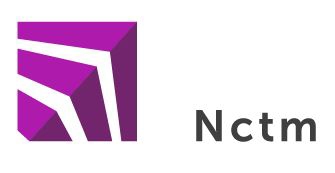The telecommunications sector is attracting increasing attention in Italy. With the so-called Decreto Sviluppo 2.0 (passed into law on December 17 2012), the government has adopted legislation supporting new types of business – namely, innovative start-ups and certified incubators. The new law is aimed, among other things, at promoting the creation of innovative start-ups capable of attracting capital from both Italian and foreign investors.
This gives hope to telecommunications operators. The new law also aims to promote sustainable growth, technological development and new entrepreneurship and employment (especially among young people). In the past few years, Italy has paid much attention to the telecommunications sector. The Digital Agenda Scorecard (a European Commission report) shows Italy as the leader in telecommunications investment among the European Union's five largest countries. According to the report, telecommunications investment in Italy represents 14.6% of operators' total revenues – well beyond the European average of 12.2%. This contradicts the common perception that Italy had lagged behind in terms of telecommunications investments. Italy ranks ahead of France (13.5%), Spain (11%), Germany (10%) and the United Kingdom (5.5%), and these figures might increase further thanks to the new law. Incentivising investors and favouring the entry of capital could also benefit the operators of a growth sector such as telecommunications.
The purpose of the law is to develop a new business culture, increase social mobility and attract talented people and foreign investment to Italy. Several incentives are envisaged for operators and investors. Decreto Sviluppo 2.0 provides that both innovative start-ups and certified incubators will be fully exempted from payment of stamp duties, administrative fees and the annual fee payable to the Chamber of Commerce.
Targeting start-ups and certified incubators will be no hazard. The new law provides for the carry forward of losses together with the possibility of remuneration through financial instruments capable of facilitating direct participation in business risk by creating a favourable tax and contribution regime.
In terms of labour supply, investors will benefit from being allowed to enter into six to 36-month fixed-term employment agreements for the first four years after the date of establishment, with a compensation structure including both a fixed and variable component.
As for governance, Decreto Sviluppo 2.0 introduces the opportunity to determine freely the rights attributable to shareholders or the issuance of work-for-equity instruments. Furthermore, newly created innovative start-ups and certified incubators can aspire to internationalisation, as they have recourse to the services of the Italian Trade Promotion Agency.
Further benefits include tax credits. Natural persons will be entitled to deduct from their gross income tax an amount equal to 19% of the amount invested, up to a maximum of €500,000 per tax period, provided that the investment is maintained for two years (under penalty of losing the benefit). Legal entities will be entitled to deduct from their corporate income tax an amount equal to 20% of the amount invested in the innovative start-up's share capital, up to a maximum of €1.8 million, also provided that the investment is maintained for two years (under penalty of losing the benefit).
As far as venture capital raising is concerned, a crowdfunding system based on online platforms will be available. Investment companies and banks authorised to carry out the relevant investment services will be eligible to manage crowdfunding platforms, in addition to entities listed in a special register maintained by CONSOB, the market regulator.
Thanks to the new allowances introduced by Decreto Sviluppo 2.0, targeting start-ups and certified incubators in Italy can therefore be a strategic move for both Italian and foreign telecommunications operators and investors.
For further information on this topic please contact Vittorio Noseda or Carlo Grignani at NCTM Studio Legale Associato by telephone (+39 02 72 5511), fax (+39 02 72 55 1501) or email ([email protected] or [email protected]).
This article was first published by the International Law Office, a premium online legal update service for major companies and law firms worldwide. Register for a free subscription.



